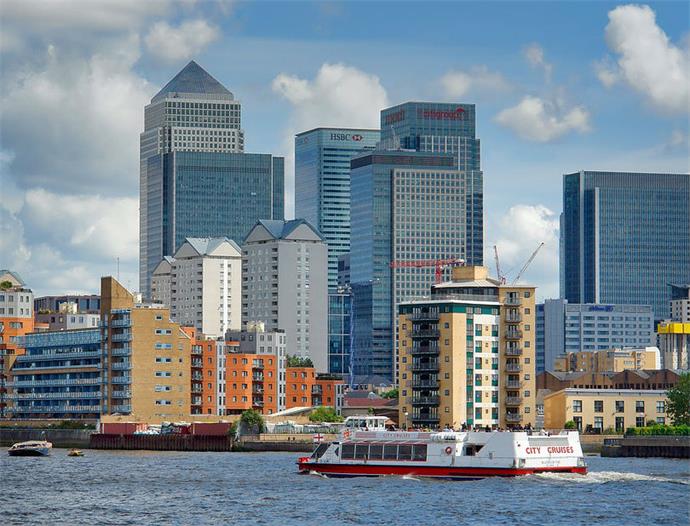The UK commercial property market has shown great resilience, continues to attract considerable interest from foreign investors and is set to strengthen further in the next few years, panellists agreed at the PropertyEU Outlook 2H 2018 – Europe & UK investment briefing which was held on Thursday at the London office of Colliers International.
‘The UK is in a position to outperform and the occupier markets are robust,’ said Walter Boettcher, research director & economist, UK & EMEA Research at Colliers International. ‘The regions are outperforming London, which has contracted since the referendum, but office leasing in the capital has still gone up above the 10-year average. Brexit-related job losses have been very limited and demand is strong, so the market looks stable.’
The UK commercial property market is characterised by remarkably low volatility and low yields, he said, ‘which are a function of the weight of global capital and the ongoing search for yield. There could be an imminent step up in risk appetite'.
Foreign capital never deserted the UK but the flow is now on the increase. ‘I am very positive about the UK market and we see a lot of demand for UK assets from our clients in Continental Europe, especially for alternatives,’ said Alexander Fischbaum, managing director of AF Advisory.
‘There is a huge shift to the alternative sector, despite the operational risk,’ said Richard Divall, head of cross border capital markets, EMEA, Colliers International. ‘There is new capital coming in all the time from all over the world. Japanese investors, South Korean insurance companies, Canadian pension funds. Several Australian groups are in London looking around for opportunities.’
Overseas investors have been consistent in their interest for the UK market, partly thanks to the weakness of sterling, but domestic investors are now getting in on the act. ‘UK institutions, on the other hand, have been through a period of portfolio adjustment which may be over,’ said Boettcher. ‘They are now set to come back to the market.’
The fact that the UK is at a later stage of the cycle is not a deterrent. ‘Investors are realistic about the cycle but they are still interested because they see opportunities in the market,’ said Simon Martin, partner, head of research & strategy, investment committee member at Tristan Capital Partners.
Bright outlook after slow start
There has been a slow start to the year but the outlook for the UK market is broadly positive, said John Knowles, head of national capital markets at Colliers International: ‘We expect greater activity in the second half of 2018 and in particular a very strong Q4, which will bring transactions to the same high level as last year.’
There is still the risk of a hard Brexit on the horizon, said Georg Pfleiderer, director, portfolio management & operations, research at Triuva/Patrizia. He sounded a note of caution: ‘We see significant medium-term risks in London, yet there is no risk premium included. We have chosen to invest in Edinburgh and will continue to do so, because from a risk/return perspective it looks like a better bet.’
Martin agreed: ‘You cannot ignore the fact that the UK has sliced off a big chunk of its competitive advantage, so it is much harder to make the case for being massively overweight in the UK, especially at a time when other European capitals are on the rise. So I think it is reasonable to expect that in future the UK will capture less of the global investment flows than the disproportionate amount it has attracted in the past.’
Financing environment
One positive about the UK market is a positive financing environment, with the exception of development which is still a challenge.
‘We are in a unique financing market,’ said Fischbaum. ‘Any sensible proposal can get financing at high LTVs and very low margins. Banks are keen to lend money but they are more focused and very specific as to what they want, so if you go to the right lender and present your case in great detail you will get attractive finance.’
The UK is still healthily unleveraged and 2007 is a distant memory. ‘Leverage levels are low in the UK market and exposure to real estate as a percentage of total lending is still falling,’ said Boettcher. ‘Risk is coming back into the equation and banks will be more adventurous, so we’ll have a proper debt cycle in the UK which we haven’t really had yet.’


































